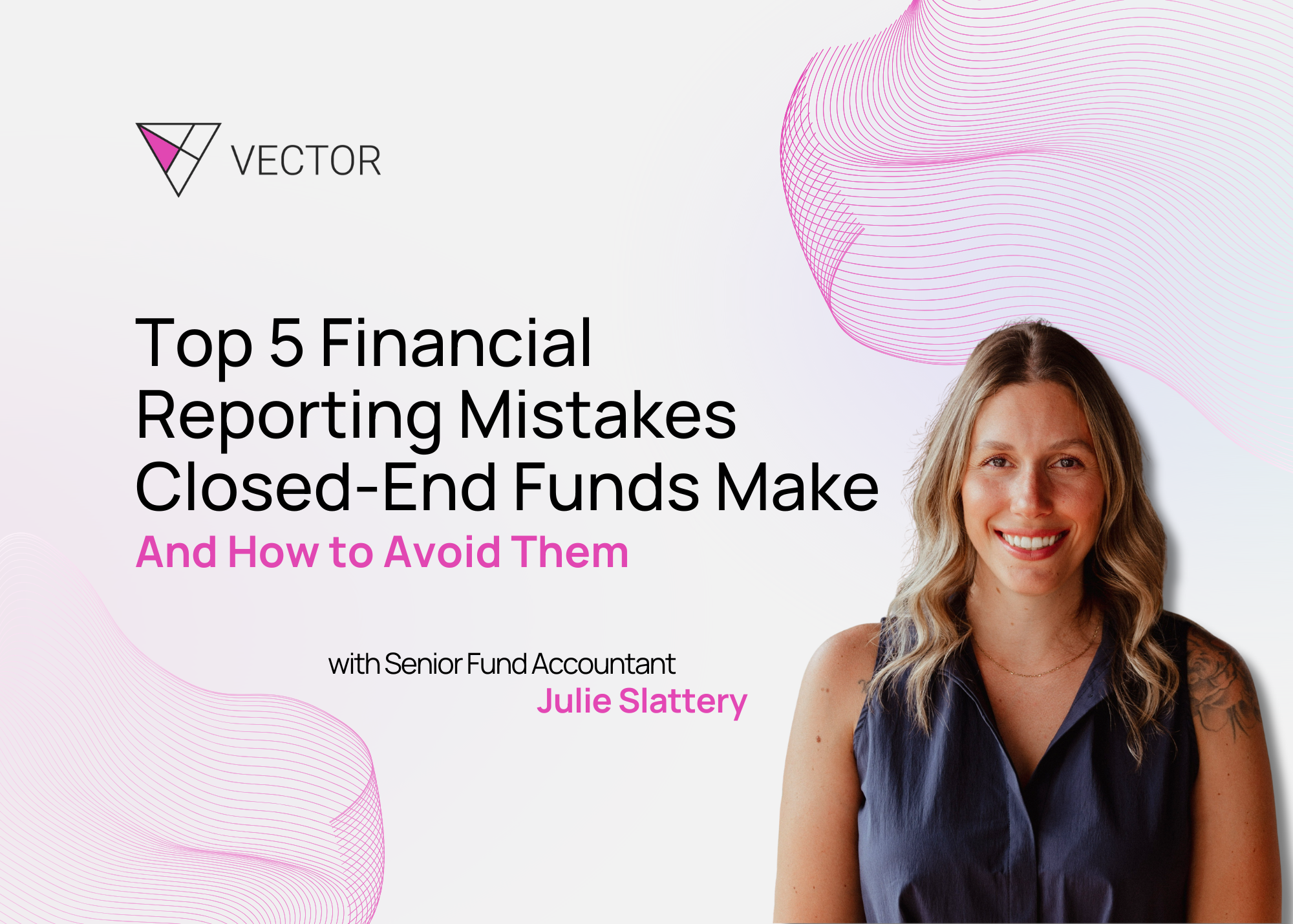As someone who works closely with closed-end fund clients in fund administration, I've seen first-hand how even experienced fund managers can fall into avoidable financial reporting traps. Whether you're launching your first fund or managing multiple vintage funds, clean and accurate reporting is critical, not just for compliance, but for building lasting trust with your LPs.
Here are the top 5 financial reporting mistakes closed-end funds commonly make, and how to sidestep them:
1. Inconsistent Capital Account Reporting
- The issue: Capital accounts don't align between quarters due to inconsistent treatment of contributions, distributions, or management fees.
- Why it matters: LPs reply on these balances to assess their position. Discrepancies raise red flags and complicate audits.
- Avoid it by: Establishing standard templates and reconciling capital balances quarterly. Use your fund administrator's review process to catch variances early.
2. Misclassifying Management Fees and Fund Expenses:
- The issue: Allocating fund-level expenses incorrectly, especially between management company and fund books.
- Why it matters: Blurs the line between GP and LP responsibilities, potentially violating LP agreements or regulatory rules.
- Avoid it by: Reviewing the LPA guidelines carefully. Expense classification should be clearly documented and applied consistently across reporting periods.
3. Delays in NAV Calculations and Investor Statements
- The issue: NAVs and investor reports are delivered late due to manual process or missing valuations from portfolio companies.
- Why it matters: LPs are increasingly expecting timely, transparent reporting. Delays impact trust and fundraising for future funds.
- Avoid it by: Automating key parts of the reporting cycle, creating valuation calendars, and engaging portfolio companies early. Your fund administration partner can help you drive a repeatable close process.
4. Not Preparing for the Audit Until It's Too Late
- The issue: Waiting until year-end to gather documentation or reconcile accounts.
- Why it matters: Increases the risk of audit findings, delayed delivery of K-1s, and strain on LP relationships.
- Avoid it by: Treating every quarter as an "audit-ready" cycle. Your fund administrator can help you maintain proper working papers and track deliverables throughout the year.
5. Overlooking Disclosures in Financial Statements
- The issue: Financials are technically accurate but missing disclosures required under U.S. GAAP or other standards.
- Why it matters: LPs, auditors, and regulators expect full transparency, especially in areas like fair value, risks, and related-party transactions.
- Avoid it by: Reviewing disclosure checklists regularly and leveraging your fund administrator team's experience in specific GAAP presentation.
Final Thoughts:
Running a closed-end fund comes with enough challenges, and financial reporting shouldn't be one of them. Avoiding these mistakes not only keeps you compliant, but strengthens relationships with your LPs and sets the foundation for future growth.
Looking to avoid these pitfalls in your own fund?
At Vector AIS, we specialize in helping venture capital funds get financial reporting right from day one. Our team combines deep back-office expertise with purpose-built technology to ensure your reporting is timely, accurate, and audit-ready every quarter.
Reach out to us today to talk about how we can support your fund's success.
